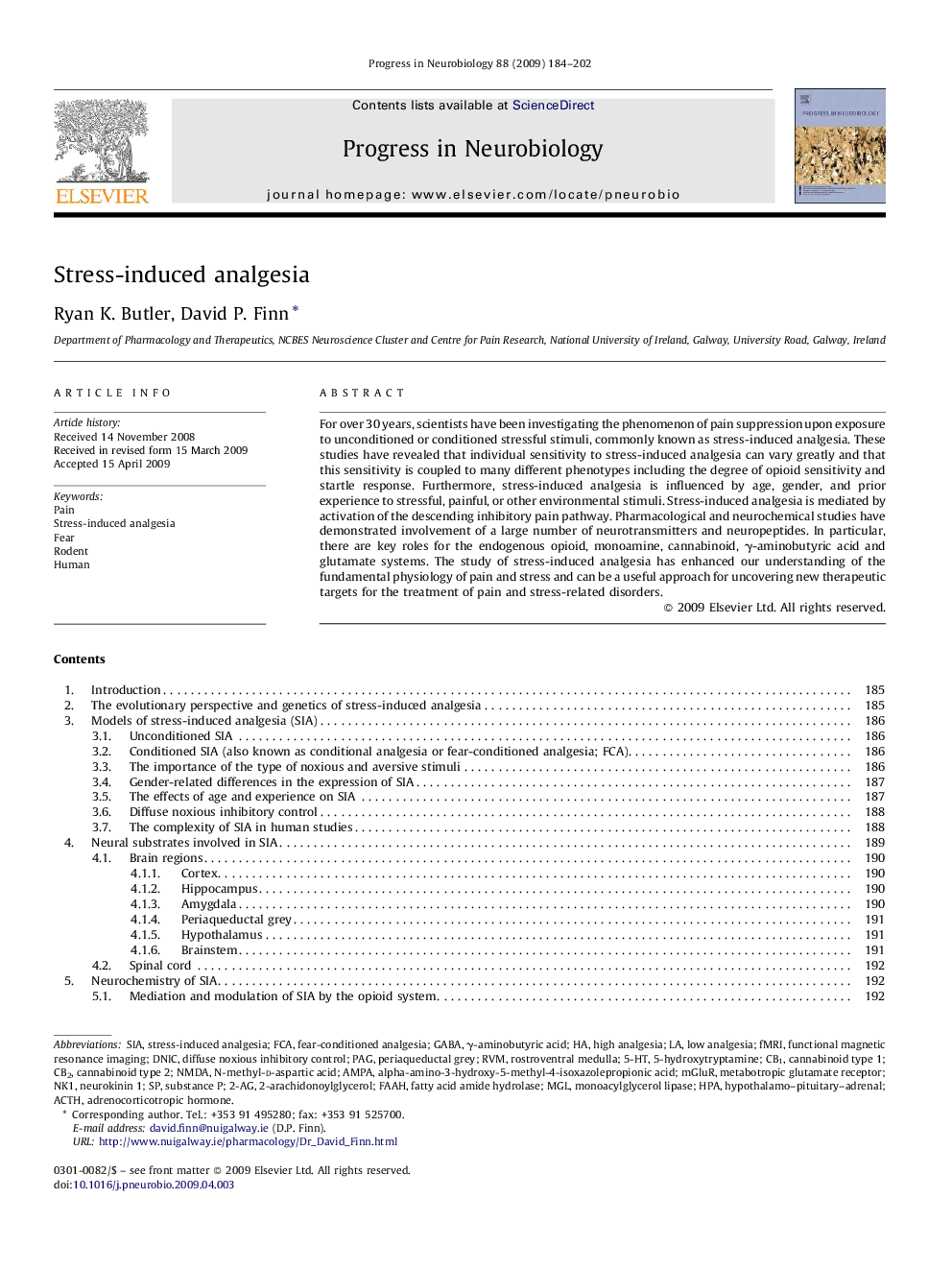| Article ID | Journal | Published Year | Pages | File Type |
|---|---|---|---|---|
| 4353713 | Progress in Neurobiology | 2009 | 19 Pages |
For over 30 years, scientists have been investigating the phenomenon of pain suppression upon exposure to unconditioned or conditioned stressful stimuli, commonly known as stress-induced analgesia. These studies have revealed that individual sensitivity to stress-induced analgesia can vary greatly and that this sensitivity is coupled to many different phenotypes including the degree of opioid sensitivity and startle response. Furthermore, stress-induced analgesia is influenced by age, gender, and prior experience to stressful, painful, or other environmental stimuli. Stress-induced analgesia is mediated by activation of the descending inhibitory pain pathway. Pharmacological and neurochemical studies have demonstrated involvement of a large number of neurotransmitters and neuropeptides. In particular, there are key roles for the endogenous opioid, monoamine, cannabinoid, γ-aminobutyric acid and glutamate systems. The study of stress-induced analgesia has enhanced our understanding of the fundamental physiology of pain and stress and can be a useful approach for uncovering new therapeutic targets for the treatment of pain and stress-related disorders.
